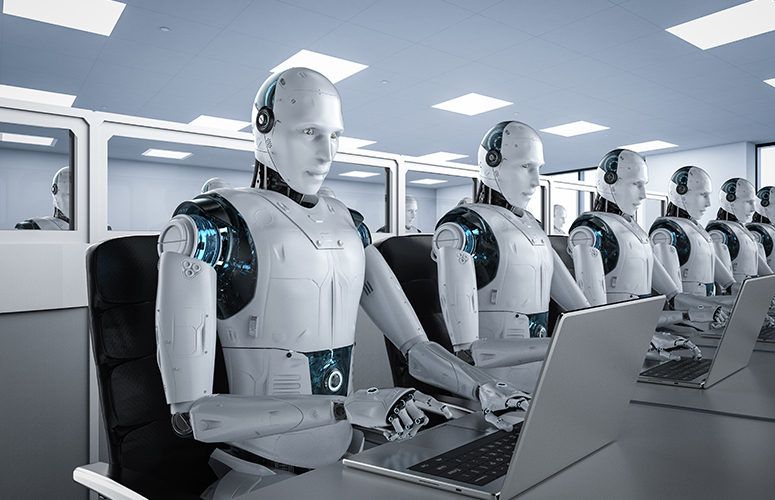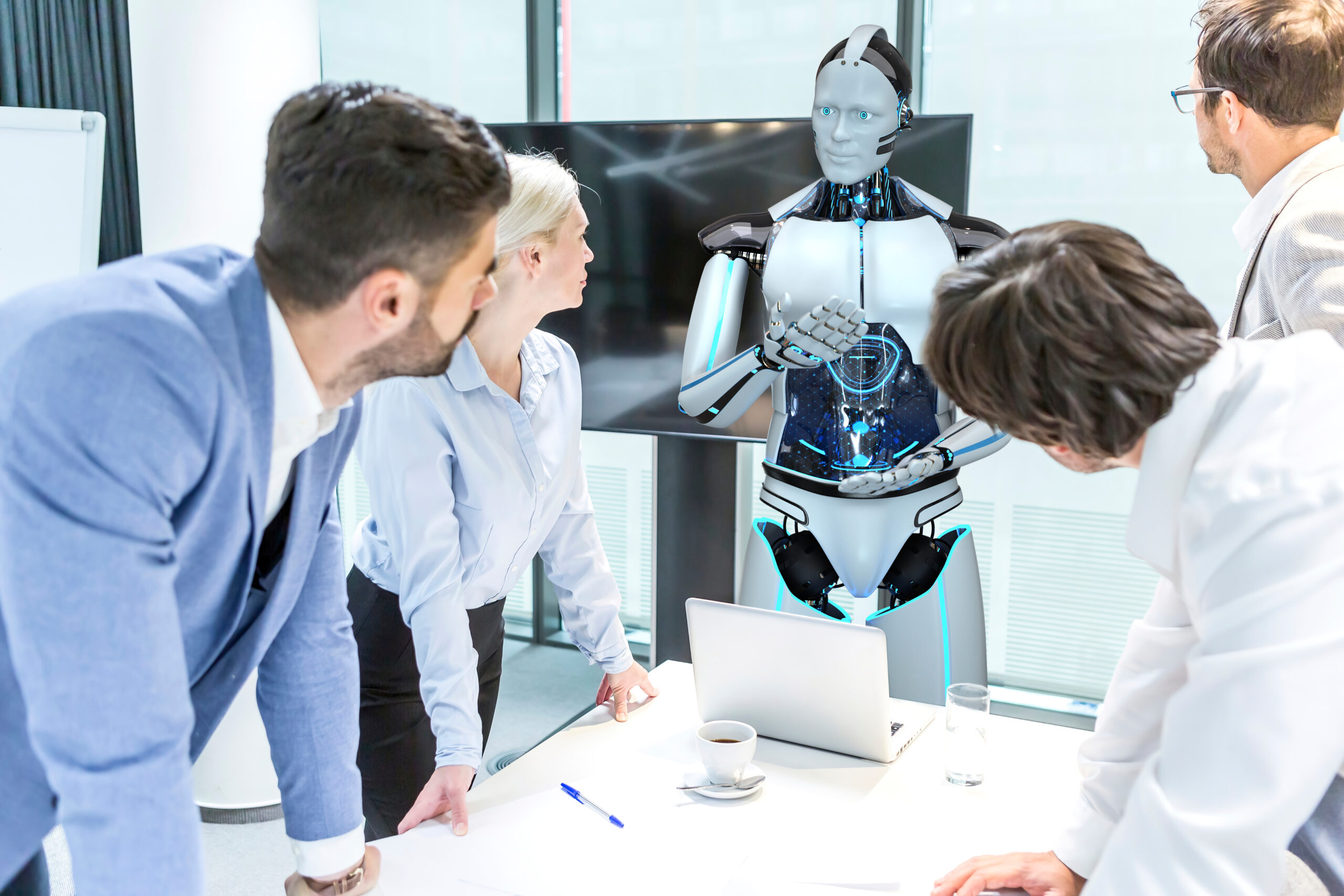Can AI Make Humans Obsolete? Exploring the Future of Artificial Intelligence
-
 Admin
Admin - 04 May, 2025

Artificial Intelligence (AI) has been transforming our world at an unprecedented pace. From self-driving cars to advanced natural language processing models, AI is becoming an integral part of our daily lives. With this rise in AI capabilities, however, a critical question arises: Can AI make humans obsolete? This question is not only about technology’s capabilities but also the ethical, social, and economic ramifications of AI in our future. In this article, we will explore how AI might impact various aspects of human life, from employment to creativity, and why it is unlikely to replace humans entirely.
What Is AI and How Does It Work?
Before delving into the potential consequences of AI on human life, it is essential to understand what AI is and how it operates. Artificial Intelligence refers to machines or systems that can perform tasks typically requiring human intelligence. These tasks include problem-solving, language processing, learning, and even decision-making.
AI is powered by machine learning (ML), where algorithms are trained on large datasets to recognize patterns and make predictions. Deep learning, a subset of machine learning, uses neural networks that mimic the human brain, allowing AI to perform more complex tasks like image and speech recognition.

The growing capabilities of AI are undeniable, but its power lies in the potential to automate tasks and enhance productivity. While this can provide significant benefits, it also raises concerns about its impact on human roles in society.
Link: What is AI and How It Works
AI in the Workforce: The Threat to Jobs?
One of the most pressing concerns regarding AI is its potential to replace human jobs. Automation has been a part of industries for decades, but with AI’s ability to perform cognitive tasks, this transformation is accelerating. In sectors like manufacturing, AI-powered robots are already replacing human workers on production lines. Similarly, in customer service, AI chatbots can answer queries and resolve issues, reducing the need for human customer support agents.
AI’s ability to handle tasks that involve decision-making and problem-solving is also growing. For instance, in healthcare, AI systems can analyze medical images to detect diseases like cancer, a task that would traditionally require a trained radiologist. In the finance industry, AI algorithms can predict stock market trends and automate trading decisions more accurately and quickly than humans.
However, the automation of jobs by AI doesn’t necessarily mean mass unemployment. Instead, it may lead to a shift in the types of jobs available. As machines take over routine tasks, humans will be freed up to perform roles that require more complex, creative, and emotional intelligence. For example, while an AI system might assist in diagnosing medical conditions, healthcare professionals will still be needed to interact with patients, offer empathy, and make complex decisions.
While some jobs will certainly be lost to automation, others will emerge. The AI industry itself requires a large number of skilled workers, from AI developers to data scientists, machine learning engineers, and ethics experts. As AI continues to evolve, new job categories and industries will likely emerge, creating new opportunities for workers.
Link: AI’s Impact on Jobs and Employment
The Role of AI in Creativity: Can Machines Replace Artists?
AI’s potential to replace humans becomes even more controversial in fields that rely on creativity. The idea that AI could replace artists, writers, or musicians might sound far-fetched, but the reality is that AI is already making strides in creative industries. For example, AI algorithms have been used to generate art, compose music, and even write poetry.
AI-generated art is becoming increasingly sophisticated, with tools like OpenAI’s DALL·E creating visually stunning images from textual prompts. Likewise, AI-powered music generation tools such as Amper Music and OpenAI’s MuseNet can create complex musical compositions.
Despite these advancements, can AI truly replace the unique creativity that comes from human experience? Human artists draw from personal experiences, emotions, and cultural backgrounds when creating their work. AI, on the other hand, lacks the depth of emotional understanding and personal context that humans bring to their creations. While AI can replicate patterns and styles, it cannot infuse art with the same emotional resonance that human creativity does.

Additionally, creativity isn’t just about technical skill; it also involves intuition, originality, and the ability to express complex ideas and emotions. These are qualities that AI cannot replicate, as it lacks the consciousness and lived experience that drive human creativity.
Link: AI and Creativity: Can Machines Be Artists?
AI in Personal Relationships: The Limits of Machine Intelligence
Another area where AI faces limitations is in its ability to replace human relationships. AI systems like chatbots and virtual assistants can simulate human conversation and even understand some aspects of human emotions, but they cannot replicate the depth of human connection.
AI-powered virtual assistants like Amazon’s Alexa or Apple’s Siri are great at answering questions, setting reminders, or controlling smart devices. However, they cannot engage in the nuanced emotional conversations that form the basis of human relationships. The emotional intelligence required to understand feelings, empathy, and the subtleties of human interactions is something that AI lacks.
In the realm of mental health, AI tools are being developed to offer basic support, such as through therapy chatbots. While these systems can provide general advice or offer a friendly ear, they cannot replace the deep empathy and understanding that human therapists offer. As AI evolves, it may assist professionals by gathering information or offering initial support, but it will never replace the essential human element of care.
Link: How AI is Shaping Human Relationships
The Ethical Concerns: Should We Fear AI?
As AI becomes more integrated into our lives, it’s crucial to address the ethical implications of relying on AI. Bias in AI systems is one of the most significant ethical concerns. AI systems learn from data, and if that data is biased, the AI system will perpetuate those biases. This can result in discriminatory outcomes, such as biased hiring practices or unjust law enforcement actions.
Another ethical concern is transparency. Many AI systems, particularly deep learning models, function as “black boxes” – their decision-making process is often not understandable to humans. This lack of transparency raises questions about accountability. If an AI system makes a mistake or causes harm, who is responsible?
Moreover, the privacy of individuals is increasingly at risk as AI systems require vast amounts of personal data to function. This raises concerns about how this data is collected, stored, and used by corporations or governments.
It is essential to ensure that AI development is guided by ethical frameworks to ensure fairness, transparency, and respect for privacy. Regulations and policies should be put in place to protect individuals and ensure AI technologies benefit society.
Link: The Ethical Implications of AI
Can AI Make Humans Obsolete? The Future of AI and Humanity
While AI is undoubtedly transforming industries and automating tasks, the idea that it will make humans obsolete is unlikely in the near future. AI is a tool designed to augment human capabilities, not replace them entirely. Its power lies in its ability to automate repetitive tasks and process large amounts of data quickly and accurately, but it still lacks the critical emotional, creative, and ethical intelligence that makes us human.
Rather than making humans obsolete, AI will likely complement human skills. Machines may handle tedious, routine, or hazardous tasks, allowing humans to focus on more complex, creative, and emotionally intelligent work. For instance, in fields like healthcare and education, AI can provide valuable insights, but human professionals will continue to be essential for making decisions that require empathy and intuition.

The future of AI and humanity lies in collaboration. As AI evolves, humans will need to adapt, acquiring new skills that machines cannot replicate. Lifelong learning and innovation will be key to thriving in an AI-driven world.
Link: The Future of Work and AI
Conclusion: AI Is Here to Stay, but Humans Aren’t Going Anywhere
In conclusion, AI is transforming the world, but it is unlikely to make humans obsolete. While AI can automate tasks and assist in various industries, it cannot replace the emotional intelligence, creativity, and ethical judgment that define humans. As AI continues to evolve, humans will adapt, finding new opportunities and ways to work alongside machines. The key to the future lies in collaboration, with AI enhancing human potential rather than replacing it.
By integrating AI into various aspects of life, we open up new opportunities for creativity, efficiency, and innovation. However, it’s essential that we address the ethical concerns and ensure that AI is developed responsibly. As long as we remain mindful of its limitations and capabilities, AI can be a powerful tool to complement, not replace, the human experience.